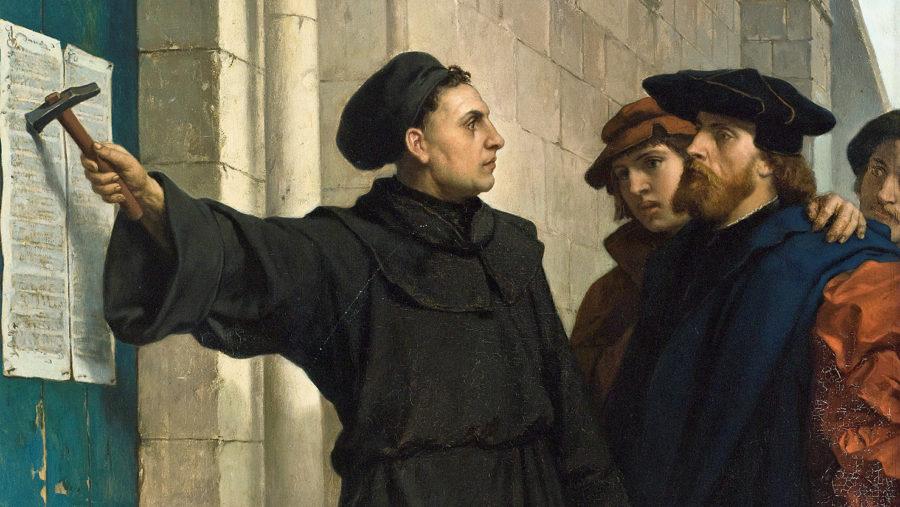500 years pass since the Protestant Reformation
October 31, 2017
It’s said, 500 years ago on Oct. 31, Martin Luther initiated an ideological attack on the Catholic Church by nailing his 95 theses to the door of a church in Wittenberg, Germany.
The resulting Protestant Reformation led to war, new ideas about Christianity and the creation of religions millions of Americans still follow today.
Tyler Gathman, senior in chemical engineering and vice president of the University Lutheran Center Student Board, is proud of the legacy Luther started and feels we should look back on him favorably.
“I think we should look back on him as somebody that stood up and did what he thought was right,” Gathman said.
As a Lutheran, Gathman sees the reformation as a positive thing in history, despite some negative consequences.
“We don’t look back on it in a negative way, we see it as a positive thing that Lutheranism was able to take the best aspects of Christianity and kind of roll it into one,” Gathman said.
Many in Gathman’s church like to celebrate and acknowledge the reformation. He recalled that one member of his church even dressed as the 95 theses for Halloween.
While the reformation did lead to greater diversity of thought in Christian faith, it also sparked numerous wars lasting from 1523 to the Peace of Westphalia in 1648. Estimates of the death toll from these European religious wars between Protestants and Catholics exceed 5,000,000.
Gathman, however, believes that these divides are largely a thing of the past. He shared that from his perspective, Christians are much more accepting and many Catholics even worship at his church.
“It’s not an issue, it’s not even acknowledged,” Gathman said.
Echoing these sentiments, Pope Francis has led the Catholic Church in a direction of greater unity with its Protestant partners.
A joint statement put out by The Vatican and the Lutheran World Federation reads: “We recognize that while the past cannot be changed, its influence upon us today can be transformed to become a stimulus for growing communion, and a sign of hope for the world to overcome division and fragmentation.”
Gathman is approving of these signs of greater unity between Catholics and Protestants.
“I think it’s great. I think Pope Francis is doing a wonderful job,” Gathman said.
Dirk Deam, senior lecturer in political science, sees the reformation from a different perspective, one that is more secular and relates more to the present day.
Deam teaches a class on the Protestant Reformation in a political context. What he sees in the reformation is a foreshadowing of later political ideology, in a religious context.
Luther spoke of a “priesthood of all believers”, rejecting religious rule by the church and in extension the Pope. Deam relates this to Abraham Lincoln’s government “of the people, by the people, for the people” and American’s rejection of rule by kings.
“Protestants substitute the idea that the members of the Church themselves comprise the Church in the same way that Americans later come to understand that the people of a republic are the essential constituents of that republic,” Deam said.
Deam also feels Protestant ministers act much like leaders in the American idea of a republic. He feels elected officials don’t necessarily rule like a king or pope, rather they “minister” to the public needs of their constituents, much like ministers minister the faith to members of their church.







